“What the …? Doesn’t that old lady know the viale is dangerous and this tunnel is worse? Get on the sidewalk, vecchietta.” Francesca yelled out the window as she swerved around the bicyclist, almost hitting a Vespa in the second lane of the ring road around Florence. The scooter, in turn, darted in front of the truck in the third lane.
“Uh, Francesca, … I think that was your mother.” Annette turned to peer in the passenger-side mirror at her friend’s 82-year-old mother as she emerged out of the tunnel into the sun. “Yup, that’s her.”
“I’m confiscating the bicicletta tomorrow,” growled Francesca.
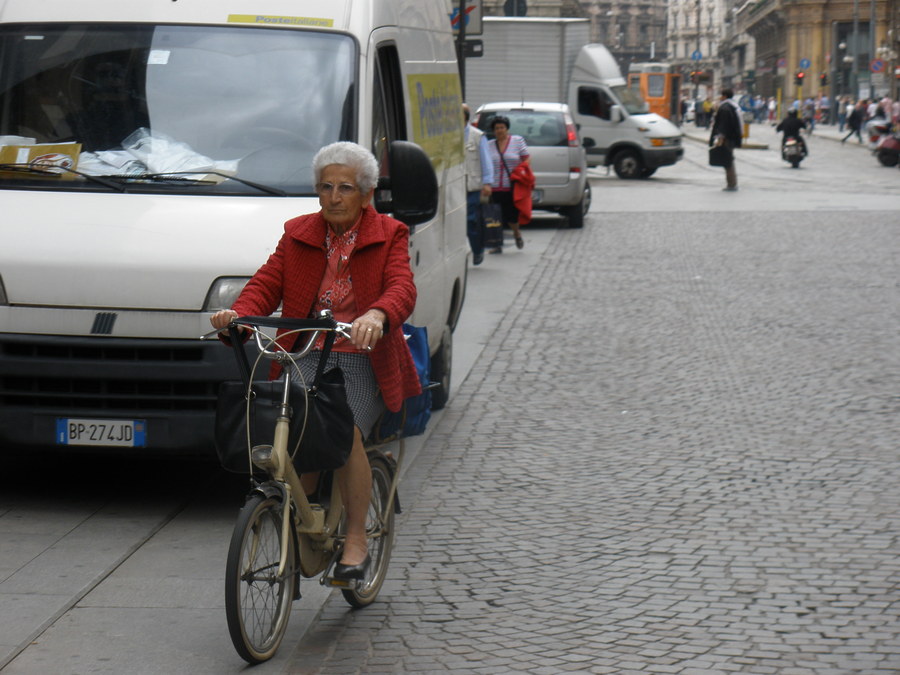
The regional governments all over Italy are pushing for more bicycling, especially in the cities. It is an effort to cut air pollution and congestion in streets better suited for horses and carts, than SUVs and sports cars. Italians are game. They have a history with bikes. The men love the sleek road bikes and the women find that shopping around town goes faster on a bicycle than in a car. With the packed city streets, a bicycle is even quicker than a scooter.
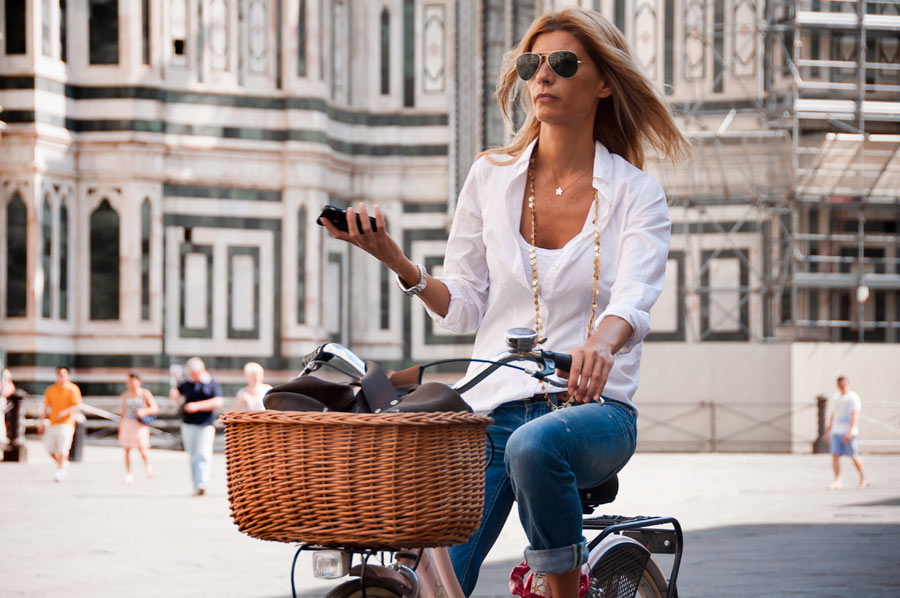
The Mayor’s Office in Florence came up with a plan: 22 euro a month for unlimited use or one to two euro per hour for occasional use of 225 bikes supplied by the city in three locations for hourly rentals and six places for monthly plan participants.
When it comes to competitive racing, few Italian women join the huge number of men, who squeeze into spandex and puff up the spectacular hills in the road races that take place every weekend, weather permitting, throughout the central and northern regions of the country. Even men in their seventies and eighties continue riding with organized teams.
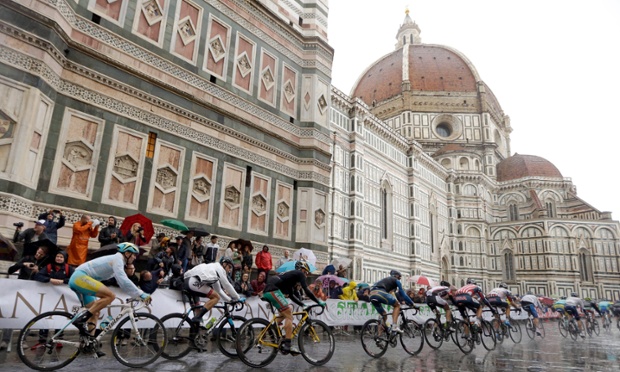
Florence recently hosted the UCI Road World Championships, boasting one of the most difficult stages in the history of the international race circuit, through the hills around Fiesole and one of the most beautiful sprints through the historic center past the Duomo. Except for a few accidents on the downhill curves from Fiesole, the Championships were deemed a big win for the city and the international cyclists. (One only-in-Italy note: The Russian team’s racing cycles were stolen (200,000 euro loss), never to be seen again.)
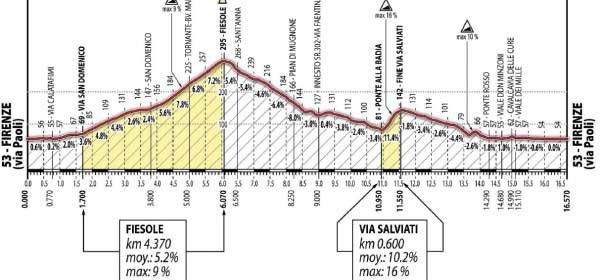
Glistening new bicycles are rarely seen around Italian towns. An old beat up bike is best — less chance of theft. Also, a bicycle with soft wide tires cushions the posterior from the jarring potholes and ancient stones that make up historic medieval streets.
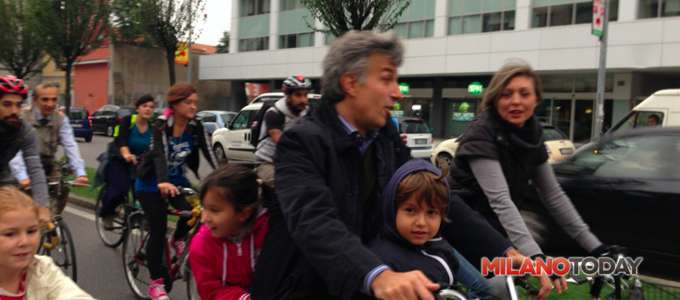
People of every age ride in Italian cities and towns. Old ladies, sexy women in stilettos, the guy with the gelled hair balancing his girlfriend sidesaddle in front or behind, the lawyer with his briefcase, and the mothers with their treasured only child in a plastic seat, frequently sighted with neither wearing a helmet like you would see in the U.S. Every neighborhood has a shop that fixes these aging, rusting bicycles, offering only air for free.
BUT Wilma’s bicycling career ended that week. Che peccato!
